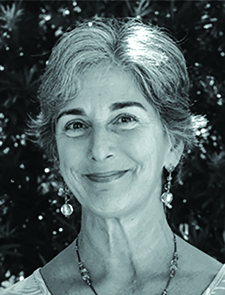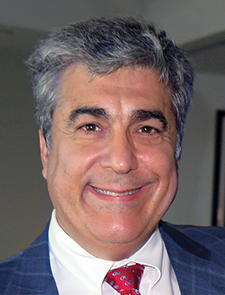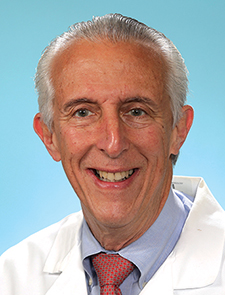Jennifer R. Grandis, MD, is a physician-scientist interested in the impact of gender on career development in medicine and science. Her cancer research is focused on elucidating and targeting key signaling pathways and genomic alterations in head and neck cancer to enable precision medicine studies. She has leveraged her access to head and neck cancer patients and their biospecimens to optimize translational research studies that include developing novel therapies in the laboratory for clinical application as well as generating and interrogating relevant preclinical models to determine the underlying mechanism of clinical findings. In her institutional roles at the University of Pittsburgh and, since 2015, at the University of California, San Francisco, she has facilitated collaborations between clinicians and investigators with an emphasis on developing a robust research infrastructure to support clinical and translational cancer studies. She has published more than 400 papers in the peer-reviewed literature and has been continuously funded by the National Institutes of Health (NIH) since joining the faculty in 1993. Dr. Grandis is an elected member of the American Society for Clinical Investigation, the Association of American Physicians, and the National Academy of Medicine. She is an American Cancer Society Clinical Research Professor.
Donald C. Lanza, MD, MS, is an internationally recognized rhinologist/skull base surgeon practicing at the Sinus and Nasal Institute of Florida in St. Petersburg; he founded the practice and collaborates there with Alla Solyar, MD. He is an innovator of minimally invasive treatments of sinus-related problems, with more than 100 peer-reviewed publications in the field of rhinology.
He has trained 28 clinical fellows since 1991, many of whom have become thought leaders in the field of rhinology. His work on sinusitis was previously referenced by the U.S. Food and Drug Administration. He has been quoted by The New York Times, The Wall Street Journal, and the Tampa Tribune for his expert opinion on sinus diseases. He has been listed continually in “Best Doctors in America” since 1994 and “Top Doctors in America” and “Top Doctors in America for Cancer” since their inception in 2001 and 2006, respectively. Dr. Lanza continues to be active with clinical care despite being diagnosed with an atypical form of Parkinson’s that affects his gait.
Jay F. Piccirillo, MD, is a professor of otolaryngology, medicine, biostatistics, and occupational therapy at Washington University School of Medicine in Saint Louis, Mo. He is the vice chair for research and director of the clinical outcomes research office for the department of otolaryngology–head and neck surgery.
Dr. Piccirillo serves as a general otolaryngologist and is the otolaryngology consultant to the Washington University Hereditary Hemorrhagic Telangiectasia Center of Excellence and the multidisciplinary Sleep Medicine Clinic. He is the editor-in-chief of JAMA Otolaryngology-Head and Neck Surgery and serves on the Journal of the American Medical Association editorial board. He is also the director of both the National Institute on Deafness and Other Communication Disorders-supported R25 Mentored Research Pathway Program and the National Center for Advancing Translational Sciences-supported TL1 Clinical and Translational Research Training Program at Washington University and is the course master for the clinical epidemiology and evidence-based medicine course for first- and second-year medical students. Dr. Piccirillo has been recognized multiple times for his teaching, including receiving the Samuel R. Goldstein Leadership Award in Medical Student Education, the highest teaching award presented to faculty.As a principal investigator, Dr. Piccirillo has led multiple research projects sponsored by the NIH and specialty societies. He developed and validated multiple patient-reported outcome measures, including the SNOT instruments, which assess the physical problems, functional limitations, and emotional consequences of rhinosinusitis. Currently, his research focuses on treatments for patients with tinnitus, snoring and sleep apnea, COVID-19-associated anosmia, and interventions for HHT-associated epistaxis.


